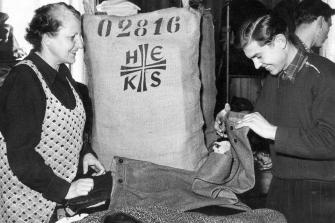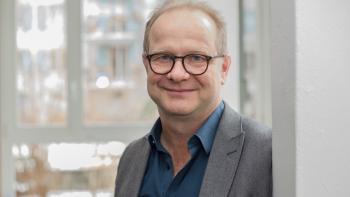75 years at the service of human dignity
HEKS/EPER is marking its 75th anniversary this year. Founded in 1946 to alleviate the untold hardship being experienced post-war Europe, Swiss Church Aid has been in constant evolution since then. Today HEKS/EPER is one of the six major Swiss NGOs specialising in development cooperation, emergency humanitarian aid as well as advocacy on behalf of asylum seekers and socially deprived people in Switzerland. Through a film, a photo exhibition as well as presentations and discussions, HEKS/EPER will be looking back at its work and projects, its successes and setbacks of the past 75 years.

On 1 January 1946 in the immediate aftermath of the Second World War, HEKS/EPER was founded at the initiative of the then Federation of Swiss Protestant Churches (SEK), now the Protestant Church in Switzerland (PCS). Today, 75 years on, HEKS/EPER has changed considerably, inspired among others by the values of solidarity, justice and human dignity. At its beginnings, it organised the sending 1900 rail cars laden with clothes, soap and potatoes for victims of the Second World War. In Eastern Europe it also erected temporary wooden churches and built orphanages. The year 1958 witnessed the first activities undertaken outside the European continent – a project in India to set up a training workshop for toolmakers. HEKS/EPER then went on to build schools in the Congo and Haiti, to deliver humanitarian aid emergency aid following the genocide in Rwanda as well as other major conflicts, and to assist victims of numerous natural disasters in rebuilding their livelihoods.
Over the years, HEKS/EPER the organisation acquired specific expertise in matters such as access to land or asylum law. In 1968 HEKS/EPER took over what is known in Switzerland as representation of a charitable organisation, which entails assisting asylum seekers as a neutral observer during their hearings. Over 700 Vietnamese and Cambodian refugees – the «boat people» – were assisted by HEKS/EPER. In the 1970s HEKS/EPER also actively championed the cause of equal rights for the black population in Angola, Zimbabwe and South Africa.

